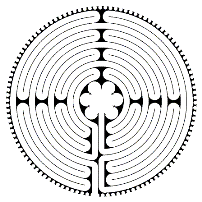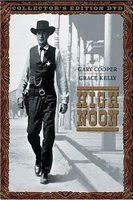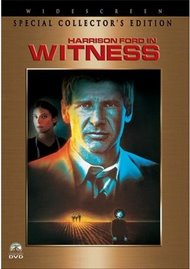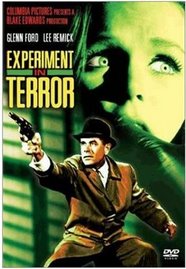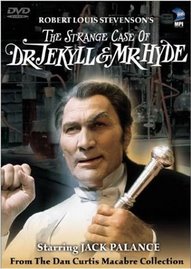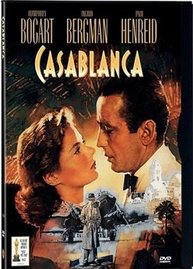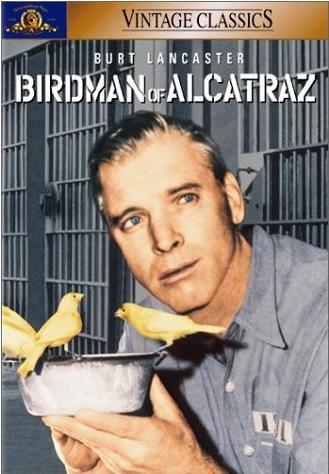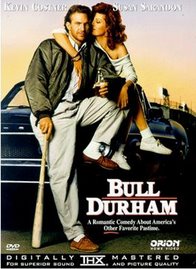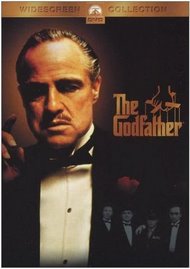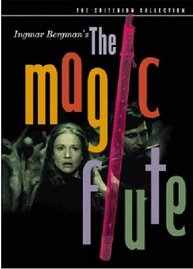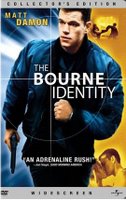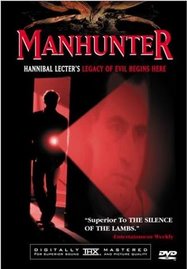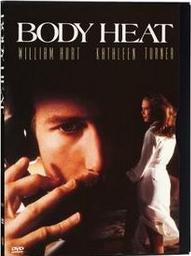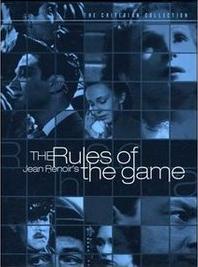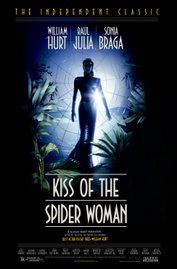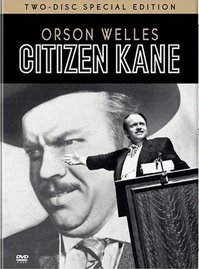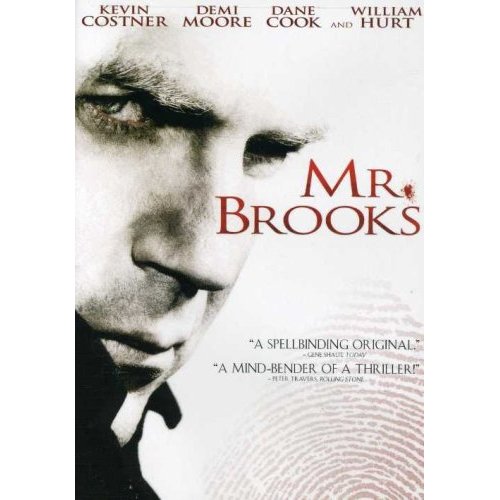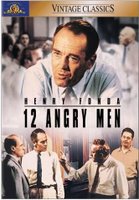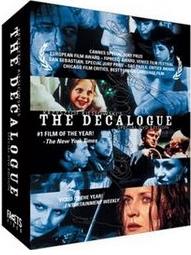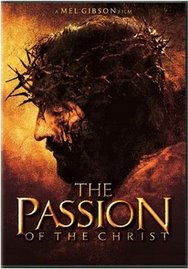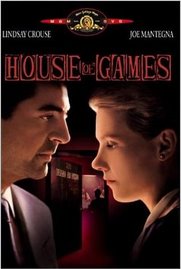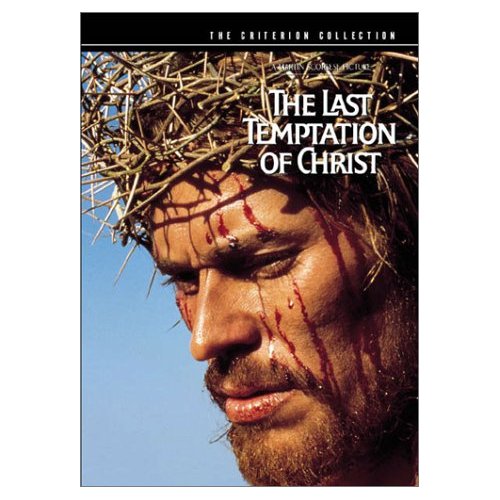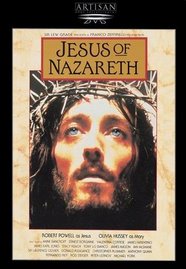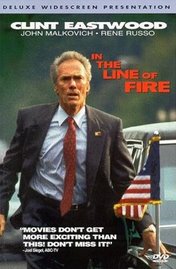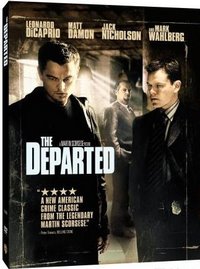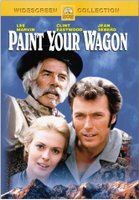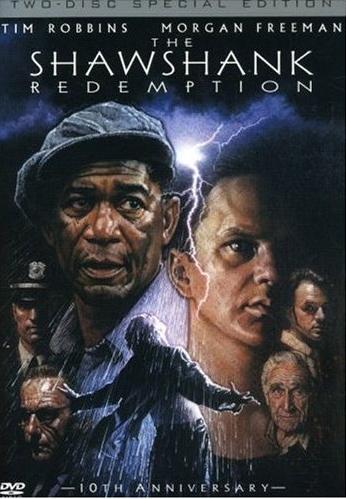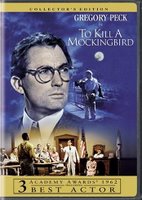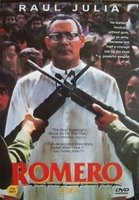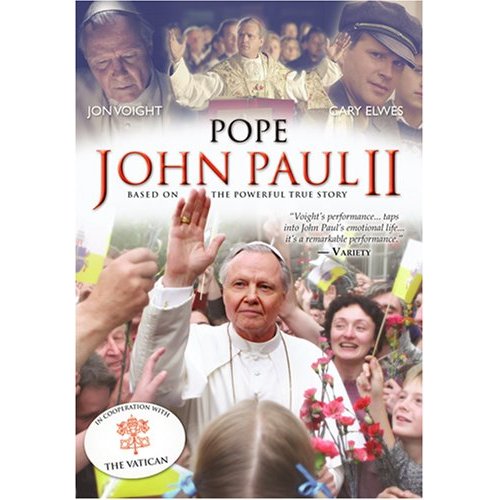The question was asked first on LinkedIn where other answers can be found. My answer was:
“Assuming for sake of this discussion that you were approaching me for a job, I would want to know the answers to the following questions which I would want to cover in person-to-person interviews:
1. Where are you coming from in your job search? Please provide at least an up-to-date-profile. Tell me your background story. What is your ordinary world like?
2. Where are you wanting to go? If you don't have at least an "X" to aim at, then you are already there and need to simply wait. It will happen. Be patient. If the "X" is different than where you are now, continue answering the questions.
3. What are you waiting for? You're a smart, talented, skillful, experienced person. Why are you reluctant?
4. What are your wise ones generally advising? Do you have a personal values statement, a personal mission statement, a clear sense of purpose, and a vision? Is there a coach of coaches whom you may want to speak with?
5. What are the pros and cons you're starting with? If you are leaning one way or another at this point, talk to the best lawyer friend you have. He or she will assist you in evening out the list till you are completely confused. Pros and cons analysis is overrated. Weighing your choices is really a mask for lack of imagination.
6. What are the "Powers that Be" saying about your search? First, who are they? I'm talking husband, friends, etc. Those who really count. They may quickly suggest that you limit your search to a geographic area because they are not ready for you to move out of town, for example. On the other hand, this may be the chance they've been looking for to tell you it's time to move on. Live in the mountains. Overseas. France, Paris. You'll always have Paris.
7. What is your real agenda in this search? Is money the real problem? Money has no agenda. Dig deeper. What's driving your search? Surely, you don't think it's time to become selfish? Turn turtle, stick your neck out for no one. Become a tyrant and dominate others. Perhaps you want someone else to provide the wall for your vine to cling on. Or maybe you want to be the center of attention for a while? Flip it. Find some heroes to emulate. At least four. One for your mind. Another for the warrior in you. Another for the martyr you are having trouble with in the sacrifices you seem to be making for others. Then for your fourth, pick one: a magician with words; a sage with philosophies of life; a statesman for the society you want to help turn over to the next generation or a saint. Someone who can connect you with the Power that constitutes you. Read everything you can get your hands on about them.
8. What facts and reasons are you contending with in your search? Write your father or mother a letter (don't send it) that explains your predicament. Remember, they were never supposed to live your life for you. They were there (or not) to help you learn how to live your own life.
9. What insights are emerging in your search? Pay attention to your dreams, the night-time kind, the day-dreams (turn off the music in your car and listen to the Silence and what comes out of it), and the movies that turn you on. The messages received will be symbolic.
10. How are you telling the story of your search? Keep a journal so you can mark your progress. Discover what story you're living. What's the next turning point in the plot?
11. What are you willing to risk in searching to gain what you want? Plan with the end in mind. Tell us what you want to be remembered for. What are you willing to die for? Okay, not so melodramatic, but you get the idea. It's your spirit that's on the line.
12. How are we knowing that decision we discern is the right one for both of us? Will the decision engage our minds, hearts, souls, and spirits? Will the enthusiasm of our finding each other as co-workers be enough to carry forward with the necessary and desirable action to see the effort to a happy result? John”
What do you think?
Please include your comment here or contact me to discuss.
Thanks.
John Darrouzet
Saturday, March 1, 2008
What is the best way to fire someone?
The question was asked first on LinkedIn where other answers can be found. My answer was:
“What are we really doing in such circumstances?
Do we:
- "fire" (the heretic),
- "terminate" (the pest),
- "let go" (the slacker),
- "dismiss" (the insubordinate),
- "divorce" (the partner)
- "remove" (the remains)
- "sack" (the quarterback)
- "retire" (the player involuntarily)
- "discharge" (the employee)
- "breakup with (the significant other) or
- "end" (the relationship)?
There are countless ways to describe what's happening, each with very different meanings; but, from the employer's point of view, all with the same legally functional result, right? Not really.
The way you frame the action is critical, especially with the possible legal consequences available, not to mention other ways to get even. And more. The person assigned the dastardly deed may discover that, after all is said and done, that person is also "fired."
I always have advised my fellow co-workers to view their jobs as a way to make a living and to advance their personal education. When they realize there are few employers who will support them in this manner, the good ones will likely stay and the others will expose themselves for what they are. I have always urged them to be using their present job to learn as many transferable skills as possible and to try to prepare for the day when they seek other, if not greener, pastures.
In keeping with this approach, I remember always the profound law written somewhere in our human nature: "Do unto others as you would have them do unto you."
Sounds like this problem has been around for a long time, doesn't it?
Bottom line: As soon as possible, with a severance check, an appointment with an out-placement expert, and a legally sufficient release in hand, I would call the person into my office to meet with me and the HR person. I would speak of what is happening as a "parting of the ways" and a "moving on". Thus I am framing the event as part ot the journeys we are all participants in.
The key is not to argue, but be firm in the presentation. Be kind and professional, dignified but not cold. Most of all, listen to what they person has to say in response. It will clue you in to the possible consequences.”
What do you think?
Please include your comment here or contact me to discuss.
Thanks.
John Darrouzet
“What are we really doing in such circumstances?
Do we:
- "fire" (the heretic),
- "terminate" (the pest),
- "let go" (the slacker),
- "dismiss" (the insubordinate),
- "divorce" (the partner)
- "remove" (the remains)
- "sack" (the quarterback)
- "retire" (the player involuntarily)
- "discharge" (the employee)
- "breakup with (the significant other) or
- "end" (the relationship)?
There are countless ways to describe what's happening, each with very different meanings; but, from the employer's point of view, all with the same legally functional result, right? Not really.
The way you frame the action is critical, especially with the possible legal consequences available, not to mention other ways to get even. And more. The person assigned the dastardly deed may discover that, after all is said and done, that person is also "fired."
I always have advised my fellow co-workers to view their jobs as a way to make a living and to advance their personal education. When they realize there are few employers who will support them in this manner, the good ones will likely stay and the others will expose themselves for what they are. I have always urged them to be using their present job to learn as many transferable skills as possible and to try to prepare for the day when they seek other, if not greener, pastures.
In keeping with this approach, I remember always the profound law written somewhere in our human nature: "Do unto others as you would have them do unto you."
Sounds like this problem has been around for a long time, doesn't it?
Bottom line: As soon as possible, with a severance check, an appointment with an out-placement expert, and a legally sufficient release in hand, I would call the person into my office to meet with me and the HR person. I would speak of what is happening as a "parting of the ways" and a "moving on". Thus I am framing the event as part ot the journeys we are all participants in.
The key is not to argue, but be firm in the presentation. Be kind and professional, dignified but not cold. Most of all, listen to what they person has to say in response. It will clue you in to the possible consequences.”
What do you think?
Please include your comment here or contact me to discuss.
Thanks.
John Darrouzet
The proverbial silver bullet -- does it exist?
The question was asked first on LinkedIn where other answers can be found. My answer was:
“Great question!
At the risk of being called the Lone Ranger, or worse, may I suggest that learning how to pray is the "silver bullet" we seek and find as we grow older.
The LinkedIn members have had several good discussions about this under the following questions:
1. How do you use prayer, if at all, when you make a decision and your process is looking to find the answer and waiting for the answer to emerge?
2. When praying about an issue for decision, does God always give you an answer?
I would also highly recommend Dreams: God's Forgotten Language by John A. Sanford. God does not appear out of a machine (a reference to the way gods were used to end plays way back when). But God does send messengers = angels who are functionally equivalent to the figures in our dreams.”
What do you think?
Please include your comment here or contact me to discuss.
Thanks.
John Darrouzet
“Great question!
At the risk of being called the Lone Ranger, or worse, may I suggest that learning how to pray is the "silver bullet" we seek and find as we grow older.
The LinkedIn members have had several good discussions about this under the following questions:
1. How do you use prayer, if at all, when you make a decision and your process is looking to find the answer and waiting for the answer to emerge?
2. When praying about an issue for decision, does God always give you an answer?
I would also highly recommend Dreams: God's Forgotten Language by John A. Sanford. God does not appear out of a machine (a reference to the way gods were used to end plays way back when). But God does send messengers = angels who are functionally equivalent to the figures in our dreams.”
What do you think?
Please include your comment here or contact me to discuss.
Thanks.
John Darrouzet
WHY: When it comes to trust, trust your gut.
The question was asked first on LinkedIn where other answers can be found.
The question was clarified with this comment: "The answer could be... 1) yes 2) no 3) maybe, it depends..."
My answer was:
“Dear Wei,
"Why" asks for causal explanation.
In the West, there are four types of classical causes:
(a) material;
(b) efficient;
(c) formal; and
(d) final.
3) is not an answer, but a flight from understanding.
2) is a denial of anything not rational, thinking all else is irrational, but missing the non-rational.
1) allows for trust, but it's well beyond the physical gut.
It is not instinct --- animals have instincts. Humans have intuition.
Trust your intuition, YES. Because, your intuition accesses all four causes.
Intuition is trained by the senses (material cause); human origination (efficient cause); informs the will which ultimately makes the decision (formal cause); and aligns us with our goals (final cause).”
What do you think?
Please include your comment here or contact me to discuss.
Thanks.
John Darrouzet
The question was clarified with this comment: "The answer could be... 1) yes 2) no 3) maybe, it depends..."
My answer was:
“Dear Wei,
"Why" asks for causal explanation.
In the West, there are four types of classical causes:
(a) material;
(b) efficient;
(c) formal; and
(d) final.
3) is not an answer, but a flight from understanding.
2) is a denial of anything not rational, thinking all else is irrational, but missing the non-rational.
1) allows for trust, but it's well beyond the physical gut.
It is not instinct --- animals have instincts. Humans have intuition.
Trust your intuition, YES. Because, your intuition accesses all four causes.
Intuition is trained by the senses (material cause); human origination (efficient cause); informs the will which ultimately makes the decision (formal cause); and aligns us with our goals (final cause).”
What do you think?
Please include your comment here or contact me to discuss.
Thanks.
John Darrouzet
Questions and Answers on the Decision-Maker’s Path™
Here are some of the questions that led to discussions by participants at LinkedIn’s Q/A forums while I was testing some of the milestones on the Decision-Maker’s Path™.
As you will quickly see, with a world-wide audience, answers come from all directions.
Please answer any of these questions below by submitting a comment on this blog.
Thanks.
John
Q/A: When is it appropriate to play "The Fool"?
Q/A: What are you certain about?
Q/A: When making a decision, what is the best way to state the issue?
Q/A: Why are we reluctant to make decisions?
Q/A: What's your type?
Q/A: Of all the people you know, dead or alive, who is the authority figure you most respect and follow?
Q/A: Who is the wisest person you know?
Q/A: Who is the holiest person you know?
Q/A: Is truth the measure of facts and the criteria for your reasoning or do you prefer working with fallacies?
Q/A: Between your reason, your emotions, and your will, which part of you should hold the reins to the other two?
Q/A: How does love influence your process of making changes?
Q/A: Have you changed your world view over the course of your career(s)?
Q/A: In the process of making a decision, when do you become aware of your unconscious agenda that may influence the outcome?
Q/A: What addictively enslaving behaviors are disintegrating the global marketplace, our societies or our individual lives?
Q/A: When you contend with others about judgments based on facts and reasons, what counterfeit arguments have you run into?
Q/A: In today's marketplace or even in our personal lives, does right make might or might make right?
Q/A: When do you have the best insights while you are in the process of making a decision?
Q/A: When do you have the worst oversights while you are in the process of making a decision?
Q/A: Are these 10 philosophical mistakes the result of oversights?
Q/A: How do you use prayer, if at all, when you make a decision and your process is looking to find the answer and waiting for the answer to emerge?
Q/A: What is the best way you have found to tell others what your real decision is?
Q/A: What is your favorite movie and why?
Q/A: When making a decision, do you always determine what you are willing to risk to gain what you can only hope for?
Q/A: What signals that the decision you discern is the right one?
As you will quickly see, with a world-wide audience, answers come from all directions.
Please answer any of these questions below by submitting a comment on this blog.
Thanks.
John
Q/A: When is it appropriate to play "The Fool"?
Q/A: What are you certain about?
Q/A: When making a decision, what is the best way to state the issue?
Q/A: Why are we reluctant to make decisions?
Q/A: What's your type?
Q/A: Of all the people you know, dead or alive, who is the authority figure you most respect and follow?
Q/A: Who is the wisest person you know?
Q/A: Who is the holiest person you know?
Q/A: Is truth the measure of facts and the criteria for your reasoning or do you prefer working with fallacies?
Q/A: Between your reason, your emotions, and your will, which part of you should hold the reins to the other two?
Q/A: How does love influence your process of making changes?
Q/A: Have you changed your world view over the course of your career(s)?
Q/A: In the process of making a decision, when do you become aware of your unconscious agenda that may influence the outcome?
Q/A: What addictively enslaving behaviors are disintegrating the global marketplace, our societies or our individual lives?
Q/A: When you contend with others about judgments based on facts and reasons, what counterfeit arguments have you run into?
Q/A: In today's marketplace or even in our personal lives, does right make might or might make right?
Q/A: When do you have the best insights while you are in the process of making a decision?
Q/A: When do you have the worst oversights while you are in the process of making a decision?
Q/A: Are these 10 philosophical mistakes the result of oversights?
Q/A: How do you use prayer, if at all, when you make a decision and your process is looking to find the answer and waiting for the answer to emerge?
Q/A: What is the best way you have found to tell others what your real decision is?
Q/A: What is your favorite movie and why?
Q/A: When making a decision, do you always determine what you are willing to risk to gain what you can only hope for?
Q/A: What signals that the decision you discern is the right one?
What process do you use in decision making?
The question was asked first on LinkedIn where other answers can be found. My answer was:
“As our mutual friend, Sherri, told you, I have been working with this question for some time now on LinkedIn with other members.
The "method in my madness" about decision-making is succinctly stated as follows:
When I know:
1. Where I'm coming from;
2. What my issue wants me to decide;
3. What I am waiting for;
4. What my wise ones generally advise;
5. What the pros and cons of the issue are;
6. What the "Powers That Be" are saying;
7. What the agendas are, including my own;
8. What facts and reasons I am contending with;
9. What my insights and oversights are about the issue;
10. What story tells my decision best;
11. What I am willing to risk to gain what I can only hope for;
12. What tell-tale enthusiasm emerges when I am ready to announce my decision,
then I know the decision is the right one.
While all stages of the process are critically important, without 9-12, the process I am engaged in is really only a form of judgment making. Likewise, without 8- 12, the process I am engaged in is really only a form of choice making. Judgments are more often made by those who rein in their emotions and wills by way of reason. Choices are more often made by those who rein in their reasons and wills by way of emotion. Decisions are more often made by those who rein in their reasons and emotions by way of will.
As a result, decision-making is a process of informing the will of insights and oversights that are best told in the form of stories, especially in the order set forth above.
We have been discussing a wide variety of related questions about decision-making over the past several months. Pay particular attention to "What is your favorite movie and why?" In that discussion, I lay out movies that I use to help others see more readily the process I'm advocating. In the speeches I have written for nationally-sought after speakers, we follow this approach with great success. Please let me know if I can be of further assistance. John”
What do you think?
Please include your comment here or contact me to discuss.
Thanks.
John Darrouzet
“As our mutual friend, Sherri, told you, I have been working with this question for some time now on LinkedIn with other members.
The "method in my madness" about decision-making is succinctly stated as follows:
When I know:
1. Where I'm coming from;
2. What my issue wants me to decide;
3. What I am waiting for;
4. What my wise ones generally advise;
5. What the pros and cons of the issue are;
6. What the "Powers That Be" are saying;
7. What the agendas are, including my own;
8. What facts and reasons I am contending with;
9. What my insights and oversights are about the issue;
10. What story tells my decision best;
11. What I am willing to risk to gain what I can only hope for;
12. What tell-tale enthusiasm emerges when I am ready to announce my decision,
then I know the decision is the right one.
While all stages of the process are critically important, without 9-12, the process I am engaged in is really only a form of judgment making. Likewise, without 8- 12, the process I am engaged in is really only a form of choice making. Judgments are more often made by those who rein in their emotions and wills by way of reason. Choices are more often made by those who rein in their reasons and wills by way of emotion. Decisions are more often made by those who rein in their reasons and emotions by way of will.
As a result, decision-making is a process of informing the will of insights and oversights that are best told in the form of stories, especially in the order set forth above.
We have been discussing a wide variety of related questions about decision-making over the past several months. Pay particular attention to "What is your favorite movie and why?" In that discussion, I lay out movies that I use to help others see more readily the process I'm advocating. In the speeches I have written for nationally-sought after speakers, we follow this approach with great success. Please let me know if I can be of further assistance. John”
What do you think?
Please include your comment here or contact me to discuss.
Thanks.
John Darrouzet
How does one find happiness in the workplace?
The question was asked first on LinkedIn where other answers can be found. My answer was:
“I find happiness is the result of a decision, something significant different than a choice. Happiness comes each day at work and play like small sips of coffee as I make my way to decision’s end where I relax and smile again about:
* Where I come from
* Where I want to go
* What I am waiting for
* What my wise ones advise
* What pros and cons I weigh
* What the “Powers That Be” insist upon
* What my own agenda reveals about me
* What facts and reasons I contend with
* What insights answer my prayers
* How I tell my story
* What losses I risk to gain what I still only hope for
* Why the decision I discern is the right one for me.
Success seems to exist for me on a horizontal plane, while happiness takes me vertical.”
What do you think?
Please include your comment here or contact me to discuss.
Thanks.
John Darrouzet
“I find happiness is the result of a decision, something significant different than a choice. Happiness comes each day at work and play like small sips of coffee as I make my way to decision’s end where I relax and smile again about:
* Where I come from
* Where I want to go
* What I am waiting for
* What my wise ones advise
* What pros and cons I weigh
* What the “Powers That Be” insist upon
* What my own agenda reveals about me
* What facts and reasons I contend with
* What insights answer my prayers
* How I tell my story
* What losses I risk to gain what I still only hope for
* Why the decision I discern is the right one for me.
Success seems to exist for me on a horizontal plane, while happiness takes me vertical.”
What do you think?
Please include your comment here or contact me to discuss.
Thanks.
John Darrouzet
According to you, what is Success? Whom do you consider as a successful Person? Are you Successful?
The question was asked first on LinkedIn where other answers can be found. My answer was:
“What level of success are you aiming for? You've probably heard this line before: If you don't know where you're going, you're already there. Same thing for "success." If you haven't set up an operational definition of success, you might think you've already achieved it, especially if you're making money. This is clearly the traditional approach.
I've found seven levels of “success” that are not all pegged to a money formula:
• Unsuccessful
• Early Operating Success
• Substantial Operating Success
• Clear and Convincing Operating Success
• Significant Operating Success
• Exemplary Operating Success
I’ll be happy to clarify my definitions. Just let me know what level of success you are interested in.
Also, please consider the discussion had by LinkedIn members concerning the differences between success and happiness.”
What do you think?
Please include your comment here or contact me to discuss.
Thanks.
John Darrouzet
“What level of success are you aiming for? You've probably heard this line before: If you don't know where you're going, you're already there. Same thing for "success." If you haven't set up an operational definition of success, you might think you've already achieved it, especially if you're making money. This is clearly the traditional approach.
I've found seven levels of “success” that are not all pegged to a money formula:
• Unsuccessful
• Early Operating Success
• Substantial Operating Success
• Clear and Convincing Operating Success
• Significant Operating Success
• Exemplary Operating Success
I’ll be happy to clarify my definitions. Just let me know what level of success you are interested in.
Also, please consider the discussion had by LinkedIn members concerning the differences between success and happiness.”
What do you think?
Please include your comment here or contact me to discuss.
Thanks.
John Darrouzet
Help Me Understand the Need to Be Right
The question was asked first on LinkedIn where other answers can be found. My answer was:
“Very important question, Sherri.
There is nothing wrong with linear thinking, but often linear thinkers forget the limits of it. Same problem with holistic thinking and holistic thinkers.
Being "right" requires a disclosure of underlying assumptions or beliefs so we can examine the assumptions and beliefs. Reasoning employs assumptions to yield valid hypothetical conclusions. Believing employs revelations to show communicated starting points from sources beyond the material world of our senses.
By examining the assumptions and beliefs we confirm the rightness of the claim, or not.
Laws and ethics try to avoid the problem by defining, in an authoritative way, how human power may be exercised legitimately or by "right". Enforcers, all around us, use reason, law, ethics, beliefs to help keep order and people in line.
Hence they are linear by nature or by choice, looking for cause and effect, logic, and punishment for "wrong" doers. They want to be in control, lest the world they seek to support collapse about them.
Holistic thinkers, on the other hand, seem more likely to use reason, law, ethics, beliefs to help keep relationships functioning and people included in the effort.
Hence they are whole-hearted by nature or by choice. They want to be in communication, lest the social network they live and work in, and support, collapses about them.
Regardless of whether we are linear thinkers or holistic thinkers, we may be self-centered and thus define what is "right" only in reference to ourselves. When this self-righteousness occurs, we may not want to stick our neck out for anyone and make sure when they do for us it does not diminish our control. Or we may only be willing to yield to a tyrant who is more tyrannical than we are. Or we may cling to the defensive walls of others until they collapse, only to find another set of walls to cling to, never exposing ourselves to the trouble of taking a position (especially about what is "right"). Or we may only want the starring role in whatever the "right" play is, with no genuine dialogue of our own.
Why this need-to-be-"right" plays out in the business world is in play so much now, I believe, is because of the series of huge scandals that have rocked the business community since Enron, WorldCom, and others. Please see the LinkedIn discussions of "might" and "right" linked below.”
What do you think?
Please include your comment here or contact me to discuss.
Thanks.
John Darrouzet
“Very important question, Sherri.
There is nothing wrong with linear thinking, but often linear thinkers forget the limits of it. Same problem with holistic thinking and holistic thinkers.
Being "right" requires a disclosure of underlying assumptions or beliefs so we can examine the assumptions and beliefs. Reasoning employs assumptions to yield valid hypothetical conclusions. Believing employs revelations to show communicated starting points from sources beyond the material world of our senses.
By examining the assumptions and beliefs we confirm the rightness of the claim, or not.
Laws and ethics try to avoid the problem by defining, in an authoritative way, how human power may be exercised legitimately or by "right". Enforcers, all around us, use reason, law, ethics, beliefs to help keep order and people in line.
Hence they are linear by nature or by choice, looking for cause and effect, logic, and punishment for "wrong" doers. They want to be in control, lest the world they seek to support collapse about them.
Holistic thinkers, on the other hand, seem more likely to use reason, law, ethics, beliefs to help keep relationships functioning and people included in the effort.
Hence they are whole-hearted by nature or by choice. They want to be in communication, lest the social network they live and work in, and support, collapses about them.
Regardless of whether we are linear thinkers or holistic thinkers, we may be self-centered and thus define what is "right" only in reference to ourselves. When this self-righteousness occurs, we may not want to stick our neck out for anyone and make sure when they do for us it does not diminish our control. Or we may only be willing to yield to a tyrant who is more tyrannical than we are. Or we may cling to the defensive walls of others until they collapse, only to find another set of walls to cling to, never exposing ourselves to the trouble of taking a position (especially about what is "right"). Or we may only want the starring role in whatever the "right" play is, with no genuine dialogue of our own.
Why this need-to-be-"right" plays out in the business world is in play so much now, I believe, is because of the series of huge scandals that have rocked the business community since Enron, WorldCom, and others. Please see the LinkedIn discussions of "might" and "right" linked below.”
What do you think?
Please include your comment here or contact me to discuss.
Thanks.
John Darrouzet
How should September 11th be memorialized?
The question was asked first on LinkedIn where other answers can be found. My answer was:
“While we all share the horrific images of the buildings falling and burning, what I remember most is the way the skies went suddenly empty, everyone putting flags on their cars and in their yards, and a sense of solidarity among Americans and those who love what we stand for throughout the world.
When the United States Congress men and woman found themselves on the Capitol steps and sang "America" spontaneously, with tears in their eyes, this most violent time had the opposite result from what was doubtless intended.
It brought out the home of the brave and the land of the free like no incident I can recall in my life time.
God bless America.
Thanks for your question, Ray.”
What do you think?
Please include your comment here or contact me to discuss.
Thanks.
John Darrouzet
“While we all share the horrific images of the buildings falling and burning, what I remember most is the way the skies went suddenly empty, everyone putting flags on their cars and in their yards, and a sense of solidarity among Americans and those who love what we stand for throughout the world.
When the United States Congress men and woman found themselves on the Capitol steps and sang "America" spontaneously, with tears in their eyes, this most violent time had the opposite result from what was doubtless intended.
It brought out the home of the brave and the land of the free like no incident I can recall in my life time.
God bless America.
Thanks for your question, Ray.”
What do you think?
Please include your comment here or contact me to discuss.
Thanks.
John Darrouzet
Have you ever had a prophetic dream or vision?
The question was asked first on LinkedIn where other answers can be found. My answer was:
“Yes. Many times.
Please allow me to answer generally about the nature or character of the dreams and visions without going into specifics. Thus, generally speaking, the prophetic dreams and visions I have are answers to my prayers concerning an issue that I am deciding.
Permit me to three sources on the subject that may take you beyond mere curiosity about what happens to useful consideration of them. First, take a look at Inner Work: Using Dreams and Active Imagination for Personal Growth by Robert A. Johnson. This "how to" book is very practical and worth more than once.
Second, the Wikipedia article on August Kekule, the scientist who linked his breakthrough discovery to his dream. Dreaming is thus highly practical.
Third and finally, please consider my personal favorite, Dreams: God's Forgotten Language by John A. Sanford. Sanford's book is by far the most encouraging because he places dreaming in the context of communication between us and the person we want to get to know better.”
What do you think?
Please include your comment here or contact me to discuss.
Thanks.
John Darrouzet
“Yes. Many times.
Please allow me to answer generally about the nature or character of the dreams and visions without going into specifics. Thus, generally speaking, the prophetic dreams and visions I have are answers to my prayers concerning an issue that I am deciding.
Permit me to three sources on the subject that may take you beyond mere curiosity about what happens to useful consideration of them. First, take a look at Inner Work: Using Dreams and Active Imagination for Personal Growth by Robert A. Johnson. This "how to" book is very practical and worth more than once.
Second, the Wikipedia article on August Kekule, the scientist who linked his breakthrough discovery to his dream. Dreaming is thus highly practical.
Third and finally, please consider my personal favorite, Dreams: God's Forgotten Language by John A. Sanford. Sanford's book is by far the most encouraging because he places dreaming in the context of communication between us and the person we want to get to know better.”
What do you think?
Please include your comment here or contact me to discuss.
Thanks.
John Darrouzet
How do you think?
The question was asked first on LinkedIn where other answers can be found. My answer was:
“Dear Lionel, Excellent question!
You are right: not everyone thinks in the same ways. Consider how professionals from different fields approach problems and you understand what I mean.
"Thinking" is what we do as human beings using our brains and minds, but also our entire bodies, our emotions, our actions, etc. Because we are human, we start our thinking with our senses. Seeing is thinking, hearing is thinking, touching is thinking, smelling is thinking, tasting is thinking.
But also, because we are human, we think mathematically, scientifically, and common-sensically. We think ideally, conceptually, hypothetically, prejudicially, in words, patterns, pictures, sounds, tastes, touches.
We think in dreams, in visions, in prayers.
As subjects we think of objects and by self-reflection we think of ourselves as objects.
We think of other subjects as well. Thus we know about "things" and "persons" via our thinking about them.
We think in terms of space and time, but also in terms of infinity, eternity, and aeviternity.
When we make judgments, we think hypothetically.
When we make decisions, we think willfully.
When we address levels of metaphysical issues, we think philosophically.
When we address levels of theological issues, we think faithfully.
When I hear people quote Rene Descartes, the so-called father of modern philosophy, saying "I think; therefore I am," I realize they are trying to emphasize their certain starting points for their points of view and opinions. However, I think he got it backwards. I prefer to say it this way: "I am; therefore, I think, laugh, live, love, etc."
As humans, barring disabilities, we have all the same ways to think.
We may think at different levels and about different things, in different times and different spaces.
We may communicate what we think about differently.
But, if we don't communicate to each other, as you have asked in your question, we can't always read each other.
We want to think and speak truthfully.
By your learning a little more about how each of us think, we all learn more about each other.
So thanks for your question that opens up the very thoughtful answers you are evoking in this discussion.
I have found "Insight: A Study of Human Understanding" by Bernard J. F. Lonergan; "Divine Madness": Plato's Case Against Secular Humanism by Josef Pieper; and The Unity of Philosophical Experience by Etienne Gilson, especially helpful in discussing the values, missions, purposes and visions of thinking.
From a writer's perspective, I also have learned that we humans like to think in stories. See for example Lincoln Stories for Leaders: Influencing Others through Storytelling by Donald T. Phillips.”
What do you think?
Please include your comment here or contact me to discuss.
Thanks.
John Darrouzet
“Dear Lionel, Excellent question!
You are right: not everyone thinks in the same ways. Consider how professionals from different fields approach problems and you understand what I mean.
"Thinking" is what we do as human beings using our brains and minds, but also our entire bodies, our emotions, our actions, etc. Because we are human, we start our thinking with our senses. Seeing is thinking, hearing is thinking, touching is thinking, smelling is thinking, tasting is thinking.
But also, because we are human, we think mathematically, scientifically, and common-sensically. We think ideally, conceptually, hypothetically, prejudicially, in words, patterns, pictures, sounds, tastes, touches.
We think in dreams, in visions, in prayers.
As subjects we think of objects and by self-reflection we think of ourselves as objects.
We think of other subjects as well. Thus we know about "things" and "persons" via our thinking about them.
We think in terms of space and time, but also in terms of infinity, eternity, and aeviternity.
When we make judgments, we think hypothetically.
When we make decisions, we think willfully.
When we address levels of metaphysical issues, we think philosophically.
When we address levels of theological issues, we think faithfully.
When I hear people quote Rene Descartes, the so-called father of modern philosophy, saying "I think; therefore I am," I realize they are trying to emphasize their certain starting points for their points of view and opinions. However, I think he got it backwards. I prefer to say it this way: "I am; therefore, I think, laugh, live, love, etc."
As humans, barring disabilities, we have all the same ways to think.
We may think at different levels and about different things, in different times and different spaces.
We may communicate what we think about differently.
But, if we don't communicate to each other, as you have asked in your question, we can't always read each other.
We want to think and speak truthfully.
By your learning a little more about how each of us think, we all learn more about each other.
So thanks for your question that opens up the very thoughtful answers you are evoking in this discussion.
I have found "Insight: A Study of Human Understanding" by Bernard J. F. Lonergan; "Divine Madness": Plato's Case Against Secular Humanism by Josef Pieper; and The Unity of Philosophical Experience by Etienne Gilson, especially helpful in discussing the values, missions, purposes and visions of thinking.
From a writer's perspective, I also have learned that we humans like to think in stories. See for example Lincoln Stories for Leaders: Influencing Others through Storytelling by Donald T. Phillips.”
What do you think?
Please include your comment here or contact me to discuss.
Thanks.
John Darrouzet
Best book to read while on a business trip?
The question was asked first on LinkedIn where other answers can be found. My answer was:
“Lincoln on Leadership: Executive Strategies for Tough Times by Donald T. Phillips. Don't leave home without it.”
What do you think?
Please include your comment here or contact me to discuss.
Thanks.
John Darrouzet
“Lincoln on Leadership: Executive Strategies for Tough Times by Donald T. Phillips. Don't leave home without it.”
What do you think?
Please include your comment here or contact me to discuss.
Thanks.
John Darrouzet
What makes a movie trailer Great?
The question was asked first on LinkedIn where other answers can be found. My answer was:
“From a screenwriter's point of view, to determine what makes a movie trailer great, at least the following elements would be taken into consideration:
A. The trailer is an invitation to the audience to go on an adventure out of the ordinary world. Thus the trailer must be inviting, not just a shortened version of the movie itself, and suggestive of the adventure's tone to come.
B. The trailer is an introduction to the central issue the hero (male or female) faces. Thus the trailer must succinctly indicate the issue in a way that draws the audience in, without fully revealing the context within which the issue is presented and resolved. The audience wants to be surprised.
C. The trailer is an opportunity to overcome the audiences' reluctance to pay attention. Thus the trailer must be edited in a manner that compels the attention of the audience with visuals, dialogue and music.
D. The trailer is a preview of the roles of the main characters and the stars who play them. Thus the trailer must include significant visuals of the key characters to show the audience some of the dimensions of the characters their stars will play.
E. The trailer is a foretaste of the drama being played out in the story. Thus the trailer must suggest the plot, but in disorganized clues. The audience wants to think they can figure out the mystery of the story in advance. So not all of the key clues should be included. No spoiled twists for example.
F. The trailer is a full-dress rehearsal demonstrating the power of the film. Thus the trailer must select powerful scenes to pique the audience's interest in the power that is displayed in the movie.
G. The trailer is a peek at the inner struggle the main characters face. Thus the trailer must include some dialogue that reveals the main characters in a "what's in it for me" moment or two.
H. The trailer is an advance notice of the facts and reasons the hero is contending with. Thus the trailer must point out the gist of the struggle.
I. The trailer is a reduced sequence of the timing presented in the story. Thus the trailer must suggest proportionately the pace of the movie itself.
J. The trailer is an opportunity to foretell some of the significant and memorable lines of dialogue. Thus the trailer must present some sound bites of the dialogue that are standalone attractive.
K. The trailer is a notification of the hope the story will portray. Thus the trailer must indicate risk, but more importantly what is hoped for as well.
L. The trailer is the beginning of a new experience for the audience. Thus the trailer must show the new look and feel of either the movie's poetic take on life, its love of life, its healing response to life, or its vision of life, one, more, or all. This will permit the trailer to let the audience know in advance that the outcome of the movie will be effective in resolving insights and oversights in the context of the storyline.”
What do you think?
Please include your comment here or contact me to discuss.
Thanks.
John Darrouzet
“From a screenwriter's point of view, to determine what makes a movie trailer great, at least the following elements would be taken into consideration:
A. The trailer is an invitation to the audience to go on an adventure out of the ordinary world. Thus the trailer must be inviting, not just a shortened version of the movie itself, and suggestive of the adventure's tone to come.
B. The trailer is an introduction to the central issue the hero (male or female) faces. Thus the trailer must succinctly indicate the issue in a way that draws the audience in, without fully revealing the context within which the issue is presented and resolved. The audience wants to be surprised.
C. The trailer is an opportunity to overcome the audiences' reluctance to pay attention. Thus the trailer must be edited in a manner that compels the attention of the audience with visuals, dialogue and music.
D. The trailer is a preview of the roles of the main characters and the stars who play them. Thus the trailer must include significant visuals of the key characters to show the audience some of the dimensions of the characters their stars will play.
E. The trailer is a foretaste of the drama being played out in the story. Thus the trailer must suggest the plot, but in disorganized clues. The audience wants to think they can figure out the mystery of the story in advance. So not all of the key clues should be included. No spoiled twists for example.
F. The trailer is a full-dress rehearsal demonstrating the power of the film. Thus the trailer must select powerful scenes to pique the audience's interest in the power that is displayed in the movie.
G. The trailer is a peek at the inner struggle the main characters face. Thus the trailer must include some dialogue that reveals the main characters in a "what's in it for me" moment or two.
H. The trailer is an advance notice of the facts and reasons the hero is contending with. Thus the trailer must point out the gist of the struggle.
I. The trailer is a reduced sequence of the timing presented in the story. Thus the trailer must suggest proportionately the pace of the movie itself.
J. The trailer is an opportunity to foretell some of the significant and memorable lines of dialogue. Thus the trailer must present some sound bites of the dialogue that are standalone attractive.
K. The trailer is a notification of the hope the story will portray. Thus the trailer must indicate risk, but more importantly what is hoped for as well.
L. The trailer is the beginning of a new experience for the audience. Thus the trailer must show the new look and feel of either the movie's poetic take on life, its love of life, its healing response to life, or its vision of life, one, more, or all. This will permit the trailer to let the audience know in advance that the outcome of the movie will be effective in resolving insights and oversights in the context of the storyline.”
What do you think?
Please include your comment here or contact me to discuss.
Thanks.
John Darrouzet
Do you believe in the bell curve of intelligence and do you think it shapes whether people are happy?
The question was asked first on LinkedIn where other answers can be found. My answer was:
“Dear Ray,
Regardless of where we are on the bell curve of intelligence, we may still be as happy as we are capable of being because, as you correctly point out, being happy has little to do with what we have. From my experience it also has little to do with how much we know as well.
Both knowledge and ignorance may result in bliss. But bliss and happiness are not the same. Bliss is a form of exquisite contentment. Happiness, on the other hand, is best acheived by making a decision in the face of our acknowledged ignorance to take a future course of action, the outcome of which we can only hope for.
The decision is based on our trust of something that or, better, someone who, encourages us to move forward.
As Abraham Lincoln put it: Most folks are about as happy as they make up their minds to be. (See the LinkedIn members' discussion of success or happiness.) In some profound way, then, happiness defies intelligence because it is a form of wisdom that is neither rational nor irrational, but rather non-rational. The position we may be in when we first discover intellectual happiness is the laughter we enjoy when we reach in all seriousness an unsolvable paradox.
For example, consider for a moment the following sentence and see what it means: "This sentence is false." If it's true, it's false. If it's false, it's true. In this way, happiness, on an individual basis, will take us off the intelligence curve at almost any spot along it.
When it happens, it is a knowledge that cannot be taken away from the knower, nor explained to another who hasn't been there or who doesn't "get" the joke and the profound reason why we laugh.
In this regard, you may want to take a look at The Laughter Is on My Side by Soren Kierkegaard or Seinfeld and Philosophy: A Book about Everything and Nothing by William Irwin.
The unique character of risibility in humans has baffled many rationalists, so much so that men and women of common sense often laugh at their frequently observed predicament.”
What do you think?
Please include your comment here or contact me to discuss.
Thanks.
John Darrouzet
“Dear Ray,
Regardless of where we are on the bell curve of intelligence, we may still be as happy as we are capable of being because, as you correctly point out, being happy has little to do with what we have. From my experience it also has little to do with how much we know as well.
Both knowledge and ignorance may result in bliss. But bliss and happiness are not the same. Bliss is a form of exquisite contentment. Happiness, on the other hand, is best acheived by making a decision in the face of our acknowledged ignorance to take a future course of action, the outcome of which we can only hope for.
The decision is based on our trust of something that or, better, someone who, encourages us to move forward.
As Abraham Lincoln put it: Most folks are about as happy as they make up their minds to be. (See the LinkedIn members' discussion of success or happiness.) In some profound way, then, happiness defies intelligence because it is a form of wisdom that is neither rational nor irrational, but rather non-rational. The position we may be in when we first discover intellectual happiness is the laughter we enjoy when we reach in all seriousness an unsolvable paradox.
For example, consider for a moment the following sentence and see what it means: "This sentence is false." If it's true, it's false. If it's false, it's true. In this way, happiness, on an individual basis, will take us off the intelligence curve at almost any spot along it.
When it happens, it is a knowledge that cannot be taken away from the knower, nor explained to another who hasn't been there or who doesn't "get" the joke and the profound reason why we laugh.
In this regard, you may want to take a look at The Laughter Is on My Side by Soren Kierkegaard or Seinfeld and Philosophy: A Book about Everything and Nothing by William Irwin.
The unique character of risibility in humans has baffled many rationalists, so much so that men and women of common sense often laugh at their frequently observed predicament.”
What do you think?
Please include your comment here or contact me to discuss.
Thanks.
John Darrouzet
How do you know when you are deceiving yourself?
The question was asked first on LinkedIn where other answers can be found. My answer was:
“David,
What did you study in philosophy? Have you come across a book called VITAL LIES SIMPLE TRUTHS: The Psychology of Self Deception by Daniel Goleman; or Kierkegaard's Philosophy: Self Deception and Cowardice in the Present Age by John Mullen; or Hard Thinking by John D. Mullen?
These are all excellent sources to explain, respectively, (1) what's going on in self-deception, (2) why it's going on so prevalently in our age, and (3) some hard solutions. Let me hear from you if these help. Thanks. John”
What do you think?
Please include your comment here or contact me to discuss.
Thanks.
John Darrouzet
“David,
What did you study in philosophy? Have you come across a book called VITAL LIES SIMPLE TRUTHS: The Psychology of Self Deception by Daniel Goleman; or Kierkegaard's Philosophy: Self Deception and Cowardice in the Present Age by John Mullen; or Hard Thinking by John D. Mullen?
These are all excellent sources to explain, respectively, (1) what's going on in self-deception, (2) why it's going on so prevalently in our age, and (3) some hard solutions. Let me hear from you if these help. Thanks. John”
What do you think?
Please include your comment here or contact me to discuss.
Thanks.
John Darrouzet
How much?
The question was asked first on LinkedIn where other answers can be found. My answer was:
“Mark -
You raise interesting questions: "What is the amount of money that it would take for you to never work again? This means never getting paid ever again... What is that number in 2007 U.S. dollars? Do you work towards that number? If not. Why not?"
Interesting because you are trying to quantify a measurable goal. However, the trouble with your question is that it does not indicate the hidden nature of your quest. Thus you may not like my answer altogether, though it is responsive to your final query: "If not. Why not?"
The simple answer is $0.01 because with one penny you can have one thought:
The answer to this question. What do you want out of life?
Financial success or commonsense happiness. What do you mean by success? What do you mean by happiness? As a result of not knowing what you mean, we respond under the illusion that we all share the same notions of wealth and wealth management.
My sense is that you want freedom from the wage-slave dilemma, but do not see that money has no agenda of its own. It is simply a means to support a way to the end desired.
While financial success can be quantified via a series of equations and strategies to get there, commonsense happiness is different and must be qualified by obtaining a series of milestones along a storied journey.
Find out what you want, do it, play instead of work at it, and enough money will follow.
As you pursue your dreams, I believe you will discover that leisure, not work, is the basis of whatever culture you have the capacity to enjoy with whatever money-wealth you obtain along the way.
As T.E. Lawrence (of Arabia) said: "All men dream: but not equally. Those who dream by night in the dusty recesses of their minds wake in the day to find that it was vanity: but the dreamers of the day are dangerous men, for they may act their dreams with open eyes, to make it possible. This I did." But see what happened to Lawrence when he finally discovered what he wanted out of life.
On the other hand, I recommend paying attention to your dreams at all times, day and night. They should be treasured always. See Dreams: God's Forgotten Language by John Sanford.”
What do you think?
Please include your comment here or contact me to discuss.
Thanks.
John Darrouzet
“Mark -
You raise interesting questions: "What is the amount of money that it would take for you to never work again? This means never getting paid ever again... What is that number in 2007 U.S. dollars? Do you work towards that number? If not. Why not?"
Interesting because you are trying to quantify a measurable goal. However, the trouble with your question is that it does not indicate the hidden nature of your quest. Thus you may not like my answer altogether, though it is responsive to your final query: "If not. Why not?"
The simple answer is $0.01 because with one penny you can have one thought:
The answer to this question. What do you want out of life?
Financial success or commonsense happiness. What do you mean by success? What do you mean by happiness? As a result of not knowing what you mean, we respond under the illusion that we all share the same notions of wealth and wealth management.
My sense is that you want freedom from the wage-slave dilemma, but do not see that money has no agenda of its own. It is simply a means to support a way to the end desired.
While financial success can be quantified via a series of equations and strategies to get there, commonsense happiness is different and must be qualified by obtaining a series of milestones along a storied journey.
Find out what you want, do it, play instead of work at it, and enough money will follow.
As you pursue your dreams, I believe you will discover that leisure, not work, is the basis of whatever culture you have the capacity to enjoy with whatever money-wealth you obtain along the way.
As T.E. Lawrence (of Arabia) said: "All men dream: but not equally. Those who dream by night in the dusty recesses of their minds wake in the day to find that it was vanity: but the dreamers of the day are dangerous men, for they may act their dreams with open eyes, to make it possible. This I did." But see what happened to Lawrence when he finally discovered what he wanted out of life.
On the other hand, I recommend paying attention to your dreams at all times, day and night. They should be treasured always. See Dreams: God's Forgotten Language by John Sanford.”
What do you think?
Please include your comment here or contact me to discuss.
Thanks.
John Darrouzet
In a world driven by commerce and profit, what does it take to keep an eye on taking care of people?
The question was asked first on LinkedIn where other answers can be found. My answer was:
“Ray, A big question.
Please consider another way of looking at it.
When the world appears to be driven by commerce and profit, the world may well seem to be flat (as the new buzzwords suggest) or horizontal, like some big mother board for us to electrify and run our programs. And for those operating on the horizontal plane, it surely feels that way. No amount of tower building will elevate some over others over the long hall. And yet, many more people were devastated to the point of despair in their views of the world than were killed in the collapse of the World Trade Center buildings.
What's going on?
We are in the middle of a world transformation. Cultures are at war, not necessarily in combat, but at least in propaganda. Those of us who prefer to stay grounded are simply common men and women. We do help other people. As those of us who raise questions and give answers do here on LinkedIn. But for a variety of reasons, some people like to have their own world views reinforced every day with negative news, fact or fiction. Those who can make money accommodating them do.
But if you take a break from your newspaper and your TV for a week, you'll experience some relief from the commercial bombardment. The issue embedded in this horizontal perspective is whether we want to consider any vertical dimensions that have always been and are presently available. The level of anxiety we feel represents the volume of the call we are being asked to heed. For above the horizontal plane of pleasure and pain, is not only the ethical perspective, but two others as well.
The cultural wars we are experiencing now swallow the ethical perspectives as people come out of their fox holes and realize their differences in matters of ethics and morals. Modern Western ethics, anyway, require considerations of evidence and reasoning. Not all cultures share the same commitments to these building blocks. Regardless, people may be seen as objects, not as subjects. Or worse, they are seen as subjects who must be governed, because they can't do it themselves effectively.
So, we must seek the higher ground of philosophies and religions to sort out what ethics cannot address alone, a perennial problem, no doubt. And here again the culture wars are currently taking over center stage, with money, power, and sex having their hay day.
Given this situation, no wonder we can only afford one eye on taking care of people when people are ravaging each other right before our eyes in such pursuits of "happiness."
In my own approach to these levels of questions, I have found it most helpful to address the underlying issues this way. Here's what it takes to keep an eye on taking care of people in a world driven by commerce and profit:
Focus both eyes, not one, on the people I love. Love my neighbors as myself. Love my God (certainly not commerce and profit as the idols they are) with all of my mind, prioritizing my values with people in mind); with all of my heart, making the love of people my mission; with all my soul, uniting with those I love for purposes that are not simply utilitarian; and with all of my spirit, seeing God's mark of the Tree of Life in the eyes of those I look on with my own.
Once you do this, your world, like mine, will be driven by other forms of "commerce" where true communication with our loved ones is more highly valued and the "profit" we experience will be the fulfillment of prophets we encounter anew.
Hopefully, with this much said, we will see eye to eye and take good care of each other in ways that make common sense.”
What do you think?
Please include your comment here or contact me to discuss.
Thanks.
John Darrouzet
“Ray, A big question.
Please consider another way of looking at it.
When the world appears to be driven by commerce and profit, the world may well seem to be flat (as the new buzzwords suggest) or horizontal, like some big mother board for us to electrify and run our programs. And for those operating on the horizontal plane, it surely feels that way. No amount of tower building will elevate some over others over the long hall. And yet, many more people were devastated to the point of despair in their views of the world than were killed in the collapse of the World Trade Center buildings.
What's going on?
We are in the middle of a world transformation. Cultures are at war, not necessarily in combat, but at least in propaganda. Those of us who prefer to stay grounded are simply common men and women. We do help other people. As those of us who raise questions and give answers do here on LinkedIn. But for a variety of reasons, some people like to have their own world views reinforced every day with negative news, fact or fiction. Those who can make money accommodating them do.
But if you take a break from your newspaper and your TV for a week, you'll experience some relief from the commercial bombardment. The issue embedded in this horizontal perspective is whether we want to consider any vertical dimensions that have always been and are presently available. The level of anxiety we feel represents the volume of the call we are being asked to heed. For above the horizontal plane of pleasure and pain, is not only the ethical perspective, but two others as well.
The cultural wars we are experiencing now swallow the ethical perspectives as people come out of their fox holes and realize their differences in matters of ethics and morals. Modern Western ethics, anyway, require considerations of evidence and reasoning. Not all cultures share the same commitments to these building blocks. Regardless, people may be seen as objects, not as subjects. Or worse, they are seen as subjects who must be governed, because they can't do it themselves effectively.
So, we must seek the higher ground of philosophies and religions to sort out what ethics cannot address alone, a perennial problem, no doubt. And here again the culture wars are currently taking over center stage, with money, power, and sex having their hay day.
Given this situation, no wonder we can only afford one eye on taking care of people when people are ravaging each other right before our eyes in such pursuits of "happiness."
In my own approach to these levels of questions, I have found it most helpful to address the underlying issues this way. Here's what it takes to keep an eye on taking care of people in a world driven by commerce and profit:
Focus both eyes, not one, on the people I love. Love my neighbors as myself. Love my God (certainly not commerce and profit as the idols they are) with all of my mind, prioritizing my values with people in mind); with all of my heart, making the love of people my mission; with all my soul, uniting with those I love for purposes that are not simply utilitarian; and with all of my spirit, seeing God's mark of the Tree of Life in the eyes of those I look on with my own.
Once you do this, your world, like mine, will be driven by other forms of "commerce" where true communication with our loved ones is more highly valued and the "profit" we experience will be the fulfillment of prophets we encounter anew.
Hopefully, with this much said, we will see eye to eye and take good care of each other in ways that make common sense.”
What do you think?
Please include your comment here or contact me to discuss.
Thanks.
John Darrouzet
Role of Spirituality in your Professional Success?
The question was asked first on LinkedIn where other answers can be found. My answer was:
“Important question.
I prefer being professionally happy as a person than becoming professionally successful in a role. Professional happiness comes when I make my way to a decision’s end knowing, especially on a spiritual level at stage 9 of these 12 stages:
1. Where I come from
2. Where I want to go
3. What I am waiting for
4. What my wise ones advise
5. What pros and cons I weigh
6. What the “Powers That Be” insist upon
7. What my own agenda reveals about me
8. What facts and reasons I contend with
9. What insights answer my prayers
10. How I tell my story
11. What losses I risk to gain what I still only hope for
12. Why the decision I discern is the right one for me.
Professional success seems to exist for me on a horizontal plane, while professional happiness takes me vertical. It seems to me you may be successful in a lot of roles by a lot of standards, especially money in our society.
Happiness seems to have a broader range than success. Happiness for me is not simply a choice or a judgment, but rather is a decision, the story of which we live out over and over.
As a result of this approach, not only going into a place of worship, but worshipping in such a holy place, not only reciting a prayer, but speaking to God through prayers, and not only remembering God, but communing with God in the hope that His remembering each of us will re-integrate us --- all of this helps us acheive happiness, whether we are successful by secular, professional standards or not.”
What do you think?
Please include your comment here or contact me to discuss.
Thanks.
John Darrouzet
“Important question.
I prefer being professionally happy as a person than becoming professionally successful in a role. Professional happiness comes when I make my way to a decision’s end knowing, especially on a spiritual level at stage 9 of these 12 stages:
1. Where I come from
2. Where I want to go
3. What I am waiting for
4. What my wise ones advise
5. What pros and cons I weigh
6. What the “Powers That Be” insist upon
7. What my own agenda reveals about me
8. What facts and reasons I contend with
9. What insights answer my prayers
10. How I tell my story
11. What losses I risk to gain what I still only hope for
12. Why the decision I discern is the right one for me.
Professional success seems to exist for me on a horizontal plane, while professional happiness takes me vertical. It seems to me you may be successful in a lot of roles by a lot of standards, especially money in our society.
Happiness seems to have a broader range than success. Happiness for me is not simply a choice or a judgment, but rather is a decision, the story of which we live out over and over.
As a result of this approach, not only going into a place of worship, but worshipping in such a holy place, not only reciting a prayer, but speaking to God through prayers, and not only remembering God, but communing with God in the hope that His remembering each of us will re-integrate us --- all of this helps us acheive happiness, whether we are successful by secular, professional standards or not.”
What do you think?
Please include your comment here or contact me to discuss.
Thanks.
John Darrouzet
Are you part of the creative solution or an unconscious reactionary?
The question was asked first on LinkedIn where other answers can be found. My answer was:
“Thank you for your inspired question.
I believe that the movement from unconscious reactionary to creative solution occurs most effectively during the process of making decisions, not choices or judgments. Since most people do not recognize the reasons for this distinction, the likelihood of remaining in reactionary mode is high, even when the effectiveness of creative solutions have been experienced before.
The gamers I know usually deal with logic that involves limited, static choices or statistically valid judgments over long periods of time and over larger and larger numbers of people. They may simulate reality but in the end they are working in an artificially ideal world. Not that that alone is a problem. It is important to articulate the desires of our ideals in the face of the apparent limitations of our material world.
The problem arises when the "reality" they settle for is a compromise between the material and ideal. In the decision-making process I work with, gamers, choice-makers, judgment makers, are forced to stop at stage 8 by the very inherent constraints of their approaches. There the battle must continue until the "no-win" predicament is recognized, when all reasonable hypotheses are tested and produce the same ultimate outcome. Hopefully, sooner than later, we will come to the realization that reasoning itself is ultimately limited to its hypothetical processes of imitating reality.
To go beyond that stage requires a deeper understanding of how creativity is tapped. Plato, the dramatist of reason, recognized "divine madness" in four modes of responding to inspiration: poesy, eros, catharsis, and prophecy.
Translating these types into modern language, poesy becomes value creation; eros becomes mission; catharsis becomes purposeful relationships; and prophecy becomes vision. However, when the link between these modes of responding to inspiration are severed from their divine origin or no longer understood or function as such, as in our modern secular society, we are left with value, mission, purpose, and vision propositions on which to base choice or judgments, but not decisions.
If we will but remember two of the central, summarizing "commandments" of the Judeo/Christian culture, the link may be repaired: Love God with all of your mind, your heart, your soul, and your spirit, and your neighbor as yourself.
Loving God with all our minds opens us to inspiration of poesy and we come to know what to create. Loving God with all our hearts opens us to inspiration of eros and we come to know whom to create it for. Loving God with all our souls opens us to inspiration of catharsis and we come to know how best to create. And loving God with all our spirits opens us to inspiration of prophecy and we come to know why we create.
By accepting the graces of inspiring insights, we join in the creative solutions that are available. By denying them by conscious, or worse unconscious, oversights, we become reactionary in relation to the divine as opposed to responsive.
Generally speaking, then, making the decision to live together in peace will mean that creative solutions have been arrived at through collaboration to grow value together rather than build barriers to it; to love peace more than war; to forgive and forget past dysfunctional relationships in favor of present mutual purposes; and to share visions of the present and future in a way that allow prophecies to be effectively articulated and achieved.
To move beyond the general solution, each of us must cross the swaying walk bridge over the fog-bound gorge alone, willing to discover whether there are others waiting our arrival on the other side to do the specific work we find for us there.”
What do you think?
Please include your comment here or contact me to discuss.
Thanks.
John Darrouzet
“Thank you for your inspired question.
I believe that the movement from unconscious reactionary to creative solution occurs most effectively during the process of making decisions, not choices or judgments. Since most people do not recognize the reasons for this distinction, the likelihood of remaining in reactionary mode is high, even when the effectiveness of creative solutions have been experienced before.
The gamers I know usually deal with logic that involves limited, static choices or statistically valid judgments over long periods of time and over larger and larger numbers of people. They may simulate reality but in the end they are working in an artificially ideal world. Not that that alone is a problem. It is important to articulate the desires of our ideals in the face of the apparent limitations of our material world.
The problem arises when the "reality" they settle for is a compromise between the material and ideal. In the decision-making process I work with, gamers, choice-makers, judgment makers, are forced to stop at stage 8 by the very inherent constraints of their approaches. There the battle must continue until the "no-win" predicament is recognized, when all reasonable hypotheses are tested and produce the same ultimate outcome. Hopefully, sooner than later, we will come to the realization that reasoning itself is ultimately limited to its hypothetical processes of imitating reality.
To go beyond that stage requires a deeper understanding of how creativity is tapped. Plato, the dramatist of reason, recognized "divine madness" in four modes of responding to inspiration: poesy, eros, catharsis, and prophecy.
Translating these types into modern language, poesy becomes value creation; eros becomes mission; catharsis becomes purposeful relationships; and prophecy becomes vision. However, when the link between these modes of responding to inspiration are severed from their divine origin or no longer understood or function as such, as in our modern secular society, we are left with value, mission, purpose, and vision propositions on which to base choice or judgments, but not decisions.
If we will but remember two of the central, summarizing "commandments" of the Judeo/Christian culture, the link may be repaired: Love God with all of your mind, your heart, your soul, and your spirit, and your neighbor as yourself.
Loving God with all our minds opens us to inspiration of poesy and we come to know what to create. Loving God with all our hearts opens us to inspiration of eros and we come to know whom to create it for. Loving God with all our souls opens us to inspiration of catharsis and we come to know how best to create. And loving God with all our spirits opens us to inspiration of prophecy and we come to know why we create.
By accepting the graces of inspiring insights, we join in the creative solutions that are available. By denying them by conscious, or worse unconscious, oversights, we become reactionary in relation to the divine as opposed to responsive.
Generally speaking, then, making the decision to live together in peace will mean that creative solutions have been arrived at through collaboration to grow value together rather than build barriers to it; to love peace more than war; to forgive and forget past dysfunctional relationships in favor of present mutual purposes; and to share visions of the present and future in a way that allow prophecies to be effectively articulated and achieved.
To move beyond the general solution, each of us must cross the swaying walk bridge over the fog-bound gorge alone, willing to discover whether there are others waiting our arrival on the other side to do the specific work we find for us there.”
What do you think?
Please include your comment here or contact me to discuss.
Thanks.
John Darrouzet
What is your integrity-based decision making process? Does it work?
The question was asked first on LinkedIn where other answers can be found. My answer was:
“The decision-making process that I rediscovered some time ago now moves the decision-maker from a dis-integrated position on an issue to an answer that integrates the person.
Achieving integrity is the heart of the process.
It is simple to explain, readily re-enforceable, and supportive of results that are different than those found in the making of choices among available alternatives and of judgments based on rules and evidence....”
What do you think?
Please include your comment here or contact me to discuss.
Thanks.
John Darrouzet
“The decision-making process that I rediscovered some time ago now moves the decision-maker from a dis-integrated position on an issue to an answer that integrates the person.
Achieving integrity is the heart of the process.
It is simple to explain, readily re-enforceable, and supportive of results that are different than those found in the making of choices among available alternatives and of judgments based on rules and evidence....”
What do you think?
Please include your comment here or contact me to discuss.
Thanks.
John Darrouzet
When did you know you were committed?
The question was asked first on LinkedIn where other answers can be found. My answer was:
“When I was younger, I thought commitment was simply a matter of choice. But then I figured out that I could change my choices since they were really set up by someone else in the first place. If I chose door A, instead of B, or C, I could come back and choose B or C another time. It seemed everything was a matter of pleasure and pain until I realized that merry-go-round was on a horizontal plane. Dizziness didn't do well with me. In the end I felt like I was boxed in.
When a little older, I thought commitment was a matter of judgement. I went on a search for rules to apply to my live and to others'. As a lawyer, I ran all the traps, learned all the assumptions I could so I could argue with the best, not only in law, but ethics, morality, philosophy, religion, etc. But this only put me on the box, not out of the box as I had hoped. By changing evidence of facts or assumptions in the rasoning, I could arrive at a different result. It was especially troubling to discover the ultimately hypothetical nature of fact determination and reasoning. I found this disconcerting and not at all what I expected in commitment.
Then finally, thank God, I discovered how decision-making works. Only when we make a decision are we committed. Short of that we have not acheived what we desire.
An easy way to think of this is the story going around about the chicken and the pig. Both claim to have made a decision to work with you. But the chicken is only willing to provide an egg, while the pig commits his bacon. Please let me know if you want to know more about my thoughts on decision-making. There are many models, but one I've come upon is more satisfying than all the rest.”
What do you think?
Please include your comment here or contact me to discuss.
Thanks.
John Darrouzet
“When I was younger, I thought commitment was simply a matter of choice. But then I figured out that I could change my choices since they were really set up by someone else in the first place. If I chose door A, instead of B, or C, I could come back and choose B or C another time. It seemed everything was a matter of pleasure and pain until I realized that merry-go-round was on a horizontal plane. Dizziness didn't do well with me. In the end I felt like I was boxed in.
When a little older, I thought commitment was a matter of judgement. I went on a search for rules to apply to my live and to others'. As a lawyer, I ran all the traps, learned all the assumptions I could so I could argue with the best, not only in law, but ethics, morality, philosophy, religion, etc. But this only put me on the box, not out of the box as I had hoped. By changing evidence of facts or assumptions in the rasoning, I could arrive at a different result. It was especially troubling to discover the ultimately hypothetical nature of fact determination and reasoning. I found this disconcerting and not at all what I expected in commitment.
Then finally, thank God, I discovered how decision-making works. Only when we make a decision are we committed. Short of that we have not acheived what we desire.
An easy way to think of this is the story going around about the chicken and the pig. Both claim to have made a decision to work with you. But the chicken is only willing to provide an egg, while the pig commits his bacon. Please let me know if you want to know more about my thoughts on decision-making. There are many models, but one I've come upon is more satisfying than all the rest.”
What do you think?
Please include your comment here or contact me to discuss.
Thanks.
John Darrouzet
A personal question: What is one of the most memorable events in your life?
The question was asked first on LinkedIn where other answers can be found. My answer was:
“Insightful question.
Of the many memorable events in my life, including many quite similar to those already mentioned, the one that strikes me at the moment is especially personal and memorable.
At the time I was a successful lawyer, father of two wonderful children, married to my wife for almost 20 years, heavily involved with my community, lacked really nothing --- except there was a sense of being alone at the heart of me. I went on a silent 8-day retreat at a Jesuit Spirituality Center at Grand Coteau, Louisiana.
My objective was to meet my loneliness head on by deliberately putting myself in a lonely spot where I was allowed only to speak one hour a day to my spiritual director. She was a nun, named Ruth. I felt extremely out of place. Thought everyone else seemed so holy, but I wasn't there by far.
At some point during our talks, Ruth asked me simply: "Have you surrendered yet?" My response was glib: "I'm from Texas. We remember the Alamo. We never surrender."
That night I had "the dream." The message was clear: In the deepest part of me, I was not alone. I've never felt lonely again. If you're interested in knowing more about what the dream revealed, contact me. It's not scary. It's just that it's personal and I prefer to tell about it one to one.”
What do you think?
Please include your comment here or contact me to discuss.
Thanks.
John Darrouzet
“Insightful question.
Of the many memorable events in my life, including many quite similar to those already mentioned, the one that strikes me at the moment is especially personal and memorable.
At the time I was a successful lawyer, father of two wonderful children, married to my wife for almost 20 years, heavily involved with my community, lacked really nothing --- except there was a sense of being alone at the heart of me. I went on a silent 8-day retreat at a Jesuit Spirituality Center at Grand Coteau, Louisiana.
My objective was to meet my loneliness head on by deliberately putting myself in a lonely spot where I was allowed only to speak one hour a day to my spiritual director. She was a nun, named Ruth. I felt extremely out of place. Thought everyone else seemed so holy, but I wasn't there by far.
At some point during our talks, Ruth asked me simply: "Have you surrendered yet?" My response was glib: "I'm from Texas. We remember the Alamo. We never surrender."
That night I had "the dream." The message was clear: In the deepest part of me, I was not alone. I've never felt lonely again. If you're interested in knowing more about what the dream revealed, contact me. It's not scary. It's just that it's personal and I prefer to tell about it one to one.”
What do you think?
Please include your comment here or contact me to discuss.
Thanks.
John Darrouzet
How is it possible not to think too much?
The question was asked first on LinkedIn where other answers can be found. My answer was:
“Excellent question. It is possible to think too much, meaning we live in our heads too much, in front of these computer screens for example. When we dance, play a sport, go for a long walk, we gradually no longer think too much.
Consider "Zorba the Greek," the classic movie with Anthony Quinn as Zorba. A few of his memorable lines:
"You think too much."
"Life is trouble, only death is not."
"Dammit, boss, I like you too much not to say it. You've got everything except one thing. Madness! A man needs a little madness, or else...he never dares cut the rope and be free..."
Take a break Letizia. Sleep enough to dream. Then you'll know the difference.”
What do you think?
Please include your comment here or contact me to discuss.
Thanks.
John Darrouzet
“Excellent question. It is possible to think too much, meaning we live in our heads too much, in front of these computer screens for example. When we dance, play a sport, go for a long walk, we gradually no longer think too much.
Consider "Zorba the Greek," the classic movie with Anthony Quinn as Zorba. A few of his memorable lines:
"You think too much."
"Life is trouble, only death is not."
"Dammit, boss, I like you too much not to say it. You've got everything except one thing. Madness! A man needs a little madness, or else...he never dares cut the rope and be free..."
Take a break Letizia. Sleep enough to dream. Then you'll know the difference.”
What do you think?
Please include your comment here or contact me to discuss.
Thanks.
John Darrouzet
What are the sources of disruption to your ideal plans and how do you minimize their impact?
The question was asked first on LinkedIn where other answers can be found. My answer was:
“Most people see the real as a compromise between material and ideal views of things: material-ideal-real. I see it in a different order: material-ideal-real.
Reality is the main source of disruption to the ideal.
To minimize the impact, I make sure my material data is coming at me on a real-time basis. I pivot, like a basketball player, on the pre-conceived ideal plan but take my shots based on the real situation I am presently confronting.
Put another way, When I'm driving from point A to point B, I pay attention to the material data my car and surroundings provide me and change my course based on the real circumstances presenting themselves. My pre-conceived ideal plan yields to reality at every blocked intersection.”
What do you think?
Please include your comment here or contact me to discuss.
Thanks.
John Darrouzet
“Most people see the real as a compromise between material and ideal views of things: material-ideal-real. I see it in a different order: material-ideal-real.
Reality is the main source of disruption to the ideal.
To minimize the impact, I make sure my material data is coming at me on a real-time basis. I pivot, like a basketball player, on the pre-conceived ideal plan but take my shots based on the real situation I am presently confronting.
Put another way, When I'm driving from point A to point B, I pay attention to the material data my car and surroundings provide me and change my course based on the real circumstances presenting themselves. My pre-conceived ideal plan yields to reality at every blocked intersection.”
What do you think?
Please include your comment here or contact me to discuss.
Thanks.
John Darrouzet
What makes you Unique? And, after all, what makes you so Generic as all the others?
The question was asked first on LinkedIn where other answers can be found. My answer was:
“When we make choices or judgments, we are generic. When we make decisions, we are unique.”
What do you think?
Please include your comment here or contact me to discuss.
Thanks.
John Darrouzet
“When we make choices or judgments, we are generic. When we make decisions, we are unique.”
What do you think?
Please include your comment here or contact me to discuss.
Thanks.
John Darrouzet
Why is change regarded as a 'soft' area?
The question was asked first on LinkedIn where other answers can be found. My answer was:
“Paul, While some may regard change as a "soft" area, from the responses you have gotten thus far there appear to be many theories offered to explain what's happening. By asking the question and elaborating on it with suggestions of "lack of cognitive framework" we clearly have an idea of how you might approach the apparent problem. Without telling us more about what you mean by "soft," the conversation can lead almost anywhere. So please permit me to present a focus just on that one word.
Here's what the Merriam Webster Online Thesaurus says of the adjective "soft" (http://www.m-w.com/cgi-bin/thesaurus?book=Thesaurus&va=soft):
Entry Word: soft Function: adjective Text:
1 not loud in pitch or volumeSynonyms dull, low, quiet Related Words dead, silent, still; dreamy, peaceful, restful, soothing, tranquil; muffled, muted, softened, toned (down)
Near Antonyms brazen, dinning, discordant, noisy, obstreperous, raucous, rip-roaring, vociferous; grating, harsh, shrill, strident Antonyms blaring, blasting, booming, clamorous, clangorous, deafening, earsplitting, loud, piercing, resounding, ringing, roaring, sonorous, stentorian, thunderous
2 smooth or delicate in appearance or feel Synonyms cottony, downy, satin, satiny, silken, silky, velvety Related Words creamy; delicate, fine, slick, smooth
Near Antonyms bumpy, lumpy, pebbly; broken, jagged, ragged, rugged; grainy, granular, gritty Antonyms coarse, harsh, rough, scratchy
3 giving easily to the touchSynonyms flabby, mushy, pulpy, spongy, squashy, squishy Related Words unhardened; doughy, fleshy; droopy, flaccid, floppy, lank, limp, slack, yielding; compressible, malleable, pliable, pliant, workable
Near Antonyms inflexible, resilient, rigid, stiff, tense; resistant, sound, strong, sturdy, tough, unyielding; hardened, indurated, tempered Antonyms firm, hard, solid
4 involving minimal difficulty or effort -looking -- see EASY 1
5 lacking bodily strength-- see WEAK 1
6 lacking strength of will or character -- see WEAK 2
7 not harsh or stern especially in manner, nature, or effect -- see GENTLE 1
8 providing physical comfort -- see COMFORTABLE 1
Once you have perused the variety of words also used to describe things said to be "soft," you can recognize that those who simply claim change management is "soft" may be playing a dismissive language game. They do not want to engage in a serious dialogue about it. How to deal with such language gamesmen (and women)?
If you choose to remain on the level of language alone, I predict little progress will be made. This will be little more than change supervision as you watch them move from the usage of soft to some other variant, claiming a new cognitive framework which you will then have to contend with all over again.
If you question their judgement about change management being soft, the argument will not advance far until you get them to examine their own assumptions about it and be ready to have them examine yours. That will doubtless get messy. This will be change management at its most challenging.
If you decide for some reason to pursue the claim any further, I believe you will have to be prepared to expose their oversights and reveal your insights. But this will not be change management; rather, it will be change leadership. When we lead change and not just manage it, we become painfully aware of what is "soft" and what is "hard."”
What do you think?
Please include your comment here or contact me to discuss.
Thanks.
John Darrouzet
“Paul, While some may regard change as a "soft" area, from the responses you have gotten thus far there appear to be many theories offered to explain what's happening. By asking the question and elaborating on it with suggestions of "lack of cognitive framework" we clearly have an idea of how you might approach the apparent problem. Without telling us more about what you mean by "soft," the conversation can lead almost anywhere. So please permit me to present a focus just on that one word.
Here's what the Merriam Webster Online Thesaurus says of the adjective "soft" (http://www.m-w.com/cgi-bin/thesaurus?book=Thesaurus&va=soft):
Entry Word: soft Function: adjective Text:
1 not loud in pitch or volume
Near Antonyms brazen, dinning, discordant, noisy, obstreperous, raucous, rip-roaring, vociferous; grating, harsh, shrill, strident Antonyms blaring, blasting, booming, clamorous, clangorous, deafening, earsplitting, loud, piercing, resounding, ringing, roaring, sonorous, stentorian, thunderous
2 smooth or delicate in appearance or feel Synonyms cottony, downy, satin, satiny, silken, silky, velvety Related Words creamy; delicate, fine, slick, smooth
Near Antonyms bumpy, lumpy, pebbly; broken, jagged, ragged, rugged; grainy, granular, gritty Antonyms coarse, harsh, rough, scratchy
3 giving easily to the touch
Near Antonyms inflexible, resilient, rigid, stiff, tense; resistant, sound, strong, sturdy, tough, unyielding; hardened, indurated, tempered Antonyms firm, hard, solid
4 involving minimal difficulty or effort -looking -- see EASY 1
5 lacking bodily strength
6 lacking strength of will or character -- see WEAK 2
7 not harsh or stern especially in manner, nature, or effect -- see GENTLE 1
8 providing physical comfort -- see COMFORTABLE 1
Once you have perused the variety of words also used to describe things said to be "soft," you can recognize that those who simply claim change management is "soft" may be playing a dismissive language game. They do not want to engage in a serious dialogue about it. How to deal with such language gamesmen (and women)?
If you choose to remain on the level of language alone, I predict little progress will be made. This will be little more than change supervision as you watch them move from the usage of soft to some other variant, claiming a new cognitive framework which you will then have to contend with all over again.
If you question their judgement about change management being soft, the argument will not advance far until you get them to examine their own assumptions about it and be ready to have them examine yours. That will doubtless get messy. This will be change management at its most challenging.
If you decide for some reason to pursue the claim any further, I believe you will have to be prepared to expose their oversights and reveal your insights. But this will not be change management; rather, it will be change leadership. When we lead change and not just manage it, we become painfully aware of what is "soft" and what is "hard."”
What do you think?
Please include your comment here or contact me to discuss.
Thanks.
John Darrouzet
What do you consider are the key components/tools/topics that are relevant to business change and 'change management’?
The question was asked first on LinkedIn where other answers can be found. My answer was:
“Paul,
As I'm sure you would expect in an answer coming from me, the best approaches to change management involve a series of purposeful questions; an Intranet accessible to the team to collaborate on the issues involved; a clearly expressed decision-making process; and all disciplines that bring useful insights to the discussion.
My primary concern is about how individual persons make decisions. A secondary concern is how groups of individuals make decisions in or outside of corporate settings.
Finally, I am interested in corporate decision-making. These three concerns would be topics or sub-topics of the general one: How do you make decisions?”
What do you think?
Please include your comment here or contact me to discuss.
Thanks.
John Darrouzet
“Paul,
As I'm sure you would expect in an answer coming from me, the best approaches to change management involve a series of purposeful questions; an Intranet accessible to the team to collaborate on the issues involved; a clearly expressed decision-making process; and all disciplines that bring useful insights to the discussion.
My primary concern is about how individual persons make decisions. A secondary concern is how groups of individuals make decisions in or outside of corporate settings.
Finally, I am interested in corporate decision-making. These three concerns would be topics or sub-topics of the general one: How do you make decisions?”
What do you think?
Please include your comment here or contact me to discuss.
Thanks.
John Darrouzet
How can I raise a total of 200.000.000 euro for investments in the energy sector in Africa. The money will be used for leveraged finance.
The question was asked first on LinkedIn where other answers can be found. My answer was:
“Dear Lodewijk,
To help us better understand what you want to do, perhaps you will want to the answers to some basic questions like:
- What are your key organizational characteristics?
- What are your key organizational challenges?
- What do you mean by success?
- What kind of evidence are you prepared to disclose to support your effort to raise the money?
- How do your organization's senior leaders lead?
- How do you govern and address your social responsibilities?
- How do you develop your strategy?
- How do you obtain and use customer and market knowledge?
- How do you build relationships and grow customer satisfaction and loyalty?
- How do you measure, analyze, and then improve your organizational performance?
- How do you manage your information, information technology, and organizational knowledge?
- How do you engage your co-workers to achieve organizational and personal success?
- How do you build an effective and supportive co-worker environment?
- How do you design your work systems?
- How do you manage and improve your key organizational work processes?
- What are your charted product and service performance results over the period of the last three years? What trends do you see? How do your results compare to competitors and benchmarks?
- What are your charted customer-focused performance results over the period of the last three years? What trends do you see? How do your results compare to competitors and benchmarks?
- What are your charted financial and marketplace performance results over the period of the last three years? What trends do you see? How do your results compare to competitors and benchmarks?
- What are your charted workforce-focused performance results over the period of the last three years? What trends do you see? How do your results compare to competitors and benchmarks?
- What are your charted process effectiveness results over the period of the last three years? What trends do you see? How do your results compare to competitors and benchmarks?
- What are your charted leadership charted over the period of the last three years? What trends do you see? How do your results compare to competitors and benchmarks?
- Will you be able to provide the answers to such questions in a written statement of less than 50 pages?
This approach of writing this statement must then be followed up with deployment to persons who are in a position to formally and legally provide an investment prospectus. But the spade work is in the answer to these and other questions. John”
What do you think?
Please include your comment here or contact me to discuss.
Thanks.
John Darrouzet
“Dear Lodewijk,
To help us better understand what you want to do, perhaps you will want to the answers to some basic questions like:
- What are your key organizational characteristics?
- What are your key organizational challenges?
- What do you mean by success?
- What kind of evidence are you prepared to disclose to support your effort to raise the money?
- How do your organization's senior leaders lead?
- How do you govern and address your social responsibilities?
- How do you develop your strategy?
- How do you obtain and use customer and market knowledge?
- How do you build relationships and grow customer satisfaction and loyalty?
- How do you measure, analyze, and then improve your organizational performance?
- How do you manage your information, information technology, and organizational knowledge?
- How do you engage your co-workers to achieve organizational and personal success?
- How do you build an effective and supportive co-worker environment?
- How do you design your work systems?
- How do you manage and improve your key organizational work processes?
- What are your charted product and service performance results over the period of the last three years? What trends do you see? How do your results compare to competitors and benchmarks?
- What are your charted customer-focused performance results over the period of the last three years? What trends do you see? How do your results compare to competitors and benchmarks?
- What are your charted financial and marketplace performance results over the period of the last three years? What trends do you see? How do your results compare to competitors and benchmarks?
- What are your charted workforce-focused performance results over the period of the last three years? What trends do you see? How do your results compare to competitors and benchmarks?
- What are your charted process effectiveness results over the period of the last three years? What trends do you see? How do your results compare to competitors and benchmarks?
- What are your charted leadership charted over the period of the last three years? What trends do you see? How do your results compare to competitors and benchmarks?
- Will you be able to provide the answers to such questions in a written statement of less than 50 pages?
This approach of writing this statement must then be followed up with deployment to persons who are in a position to formally and legally provide an investment prospectus. But the spade work is in the answer to these and other questions. John”
What do you think?
Please include your comment here or contact me to discuss.
Thanks.
John Darrouzet
